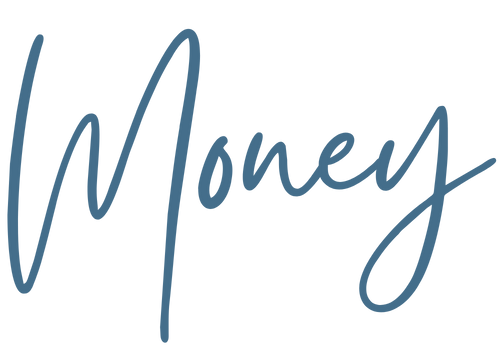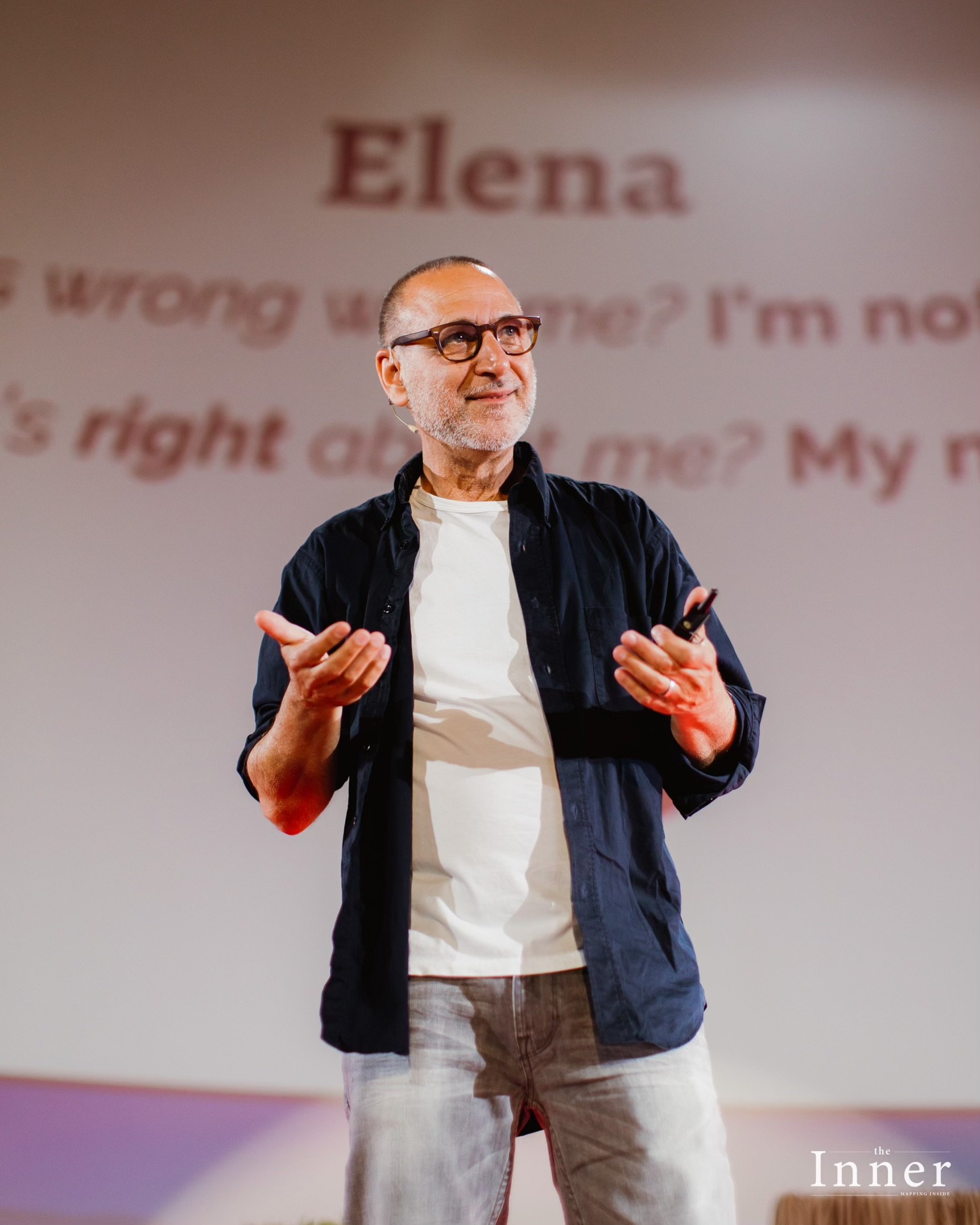
A Masterclass for Coaches, Therapists & Healers and YOU
Trauma
Healing for your body, self-worth, relationships, and the Earth.
Navigating my relationship with money has been a lifelong journey - sometimes secure and at ease, other times terrified and insecure; sometimes abundant and generous, other times living with a tight hold on every dollar; sometimes doubting my self worth and other times having not a single question about my value.
For 40 years, I've been untangling this relationship. It’s an ongoing project. Being on a healing path with my trauma around money has freed up energies for my passions and callings, allowing me to:
Express my love independent of what I can financially afford
Like and appreciate myself independent of my income or financial status
Stop, rest and write poetry more often
Be less of a perfectionist
Reduce my stomach acids and digestion dysregulation
It’s a deeply personal story that arose from my childhood, my gender - influenced by what I was taught a "man" should be, and an intergenerational story of poverty and pogroms.
Speaking of trauma…
Maybe you’re thinking:
How much should I charge for my offerings?
Am I really ready to put myself out there?
Can I count on a certain income for my future?
Am I good enough to even charge a fee for my work?
How much should I invest in promoting my business?
How can I help my clients with their money issues?
Or…maybe difficult feelings arise when you:
Look at the price tag of an item
Review your credit card statement
Ruminate about all the bills that are coming in
Count the money or debt you have (and recounting over and over)
Think of sharing your money fears, dreams, or successes with friends or family
These moments are at once literal, meaning money can be counted and responsibly used and worked for, but these moments can also be riddled with old stories.
And most importantly, these stories are rarely linked only to those of early childhood or to our ancestors who made sacrifices and who wrestled to survive, or even to nations that were subject to brutalization because of capitalism. We must also take heart of not only the victimization that occurred through money, but our connection to cultures and nations that perpetrated violence because of their wealth.
These energies become locked in and frozen in stories and experiences that live as trauma in our bodies and psyches. They determine, almost always unconsciously, our relationship with money.

You’ll Learn These Best Practices:
-
In this class, you will learn how to access the somatic experience connected to our relationship with money.
When we explore childhood or social traumas, we often engage in somatic work—connecting with the body to process these experiences. However, we rarely apply this same approach to our relationship with money.
Because of this, money remains an abstract concept rather than a felt, embodied experience. It's an idea, not something we connect with on a deeper, physical level with its own inherent intelligence.
Going deeper means we're exploring the very root of our beliefs and constraints about money, moving beyond simple mindset shifts.
-
Unpacking your relationship with money involves going deeper than surface-level thoughts. We'll explore your earliest memories and personal myths about money—the unconscious stories and beliefs you've carried since childhood.
For example: Maybe you were taught that talking about money is rude or maybe no one ever talked about money. Perhaps as a child you were careful not to ask for much because you knew your family didn’t have a lot. Maybe you were raised with gender-based ideas about money such as men provide and should have more agency when it comes to the finances than women.
By bringing these to light, we can begin to unravel the hidden drivers behind your financial habits and feelings, giving you a clearer path forward.
-
Our difficulties with money are witnessed by family and the culture. If we live in a culture that believes capitalistic pressures on children and families is “normal,” then it dismisses and gaslights your distress and the oppression of your nature. In our families, these witnesses are almost always felt as “atmospheres,” like the tensions, moods, values and even “ethics.” This is readily evidenced in how restrained we are in sharing the details of our income, savings, debt, and spendings.
The “hiding” of these details is form of the shame resulting from trauma.
-
Learn how to uncover the wisdom within your worries about scarcity and your dreams of abundance. We'll explore the fears and vulnerabilities that drive your relationship with money, and even a desire to leave capitalistic notions of money.
By doing this, you'll be able to tap into the inherent feelings of abundance that exist in your dreams and bring them into your present life.
when we're talking about money,
don't we also talk about trauma?
How come we don't share the details of our spending, income and savings with people, even often within families of the more hidden details?
We meet the world with an implied exchange of our gifts and respect for various forms of currency and care. It's an exchange that feeds us, gives us a sense of purpose, and a feeling of belonging.
This exchange is deeply tied to our self-worth. It's not just a psychological process; it requires us to manifest this exchange in the outside world in a way that aligns with our authentic self—our heart and soul.
Very often, one part of that exchange for the value of our gifts is money.
This doesn't mean you shouldn't also reach for remuneration that suits your soul and body in life.
Healing your money trauma, creates an honest and aligned relationship with money and allows you to:
Flow freely into the world while caring for our security and insecurity
Integrate the power and intelligence of old stories passed down from past generations
Unburden you of your deepest fears of scarcity.
The first order of business in addressing money trauma is seeing money as a relationship that we have, a relationship that we build, and a relationship that's formed by our early stories, just like any relationship would be.
We know, for example, that our relationship patterns often mirror our childhood relationships with our families and parents . However, this vision of understanding rarely is offered in the world of money.
We don't think of being trauma bonded to money.
We don't think of being in an abusive relationship with money.
We don’t think of the nature of our attachment with regard to money.
We don’t think of ourselves as coming from cultures that have been subject to brutalization because of lower financial status.
We don't think of ourselves as coming from cultures that have brutalized others.
Money
When we think about trauma, we usually think about physical and sexual violence that we've experienced in life, but are too blind to our relationship with money as a flowing river creating our relationship to the big world.
When you begin to heal your money relationship, you don’t just shift your bank account. You open space for trust, safety, and possibility.

and your relationship to the Earth
Our traumatized relationship with money creates a disconnection and dissociation from the Earth and her natural abundance, nurturance, and creative energy. The capitalistic view of money is built on a foundation of power over—power over other people, and critically, power over the Earth.
Working on money trauma allows us to find a deeper sense of security that goes beyond our personal achievements or financial stability, and re-establishes a connection to the Earth's intelligence and wisdom.

GET ACCESS TO THE CLASS
The live class is now complete and the recording is available for purchase for $65
What past students have said:
“Thank you for modeling such genuineness and authenticity in both your hands-on facilitation, and how you educate. I can already feel how this will impact how I hold space for myself, my clients, and my students!”
“It was an invaluable experience to witness [David’s] wisdom, presence, and genuine love for this work. We all talked about it for days after the workshop.”
“David's work is awakening my compassionate witness, not only for my work as a practitioner, but for myself. I can now feel more confident to meet my clients more deeply, being unafraid of their core pain or emotional discomforts and not being vicariously traumatized at not being able to help them! This has been truly transformative.”
“I've watched the recording of our class many times. Just today, I stopped saying 'wow' for long enough to put some thoughts down as a 'Thank you.' I will forever be changed by the opportunity to have had my experience witnessed and honored and believed by you.”
MEET YOUR FACILITATOR:
David Bedrick is the author of The Unshaming Way, about which Gabor Mate wrote, ”In this astute work, David Bedrick provides a deep investigation of shame, the most debilitating of our mind states, and offers a workable, practice-based, and accessible path to divesting ourselves from it.”
David is a teacher, counselor, and attorney. He was on the faculty for the University of Phoenix for 8 years as well as the Process Work Institute in the U.S. and Poland. He is the founder of the Santa Fe Institute for Shame-based Studies where he educates therapists, coaches and healers. His embodied way of teaching goes beyond informational, students are regularly brought to tears and face to face with their beauty, power, life path and soul.
David’s passion for studying shame arose from his childhood, growing up with a father who used fists and belts to express his rage and a mother who coped by denying and gaslighting his experience. Forty years of research, teaching, and working with individuals awakened his heart and mind to how the dominant healing paradigm pathologizes people—sees people's suffering and symptoms as something to “fix" instead of messages that deepen our relationships with ourselves and the world around us. David’s unshaming way treats difficulties as invitations to insight, soul, and the divine unfolding of our lives.
David also writes for Psychology Today and is the author of three additional books: Talking Back to Dr. Phil: Alternatives to Mainstream Psychology and Revisioning Activism: Bringing Depth, Dialogue, and Diversity to Individual and Social Change, You Can’t Judge a Body by Its Cover: 17 Women’s Stories of Hunger, Body Shame and Redemption. His 5th book will also be published by North Atlantic Books and available early in 2026.












